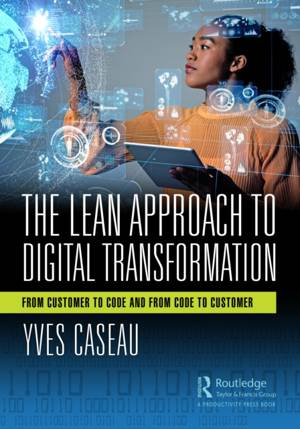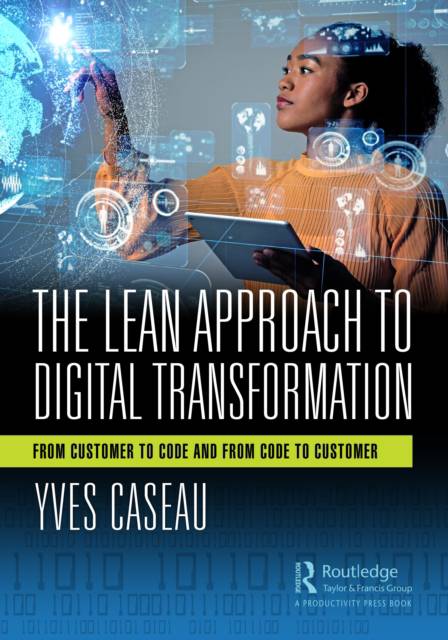
- Retrait gratuit dans votre magasin Club
- 7.000.000 titres dans notre catalogue
- Payer en toute sécurité
- Toujours un magasin près de chez vous
- Retrait gratuit dans votre magasin Club
- 7.000.0000 titres dans notre catalogue
- Payer en toute sécurité
- Toujours un magasin près de chez vous
The Lean Approach to Digital Transformation
From Customer to Code and From Code to Customer
Yves Caseau
Livre broché | Anglais
86,95 €
+ 173 points
Format
Description
The approach proposed in this book is based on the Lean Startup approach, according to an extended vision that combines Design Thinking and Growth Hacking. Companies must become truly "customer-centric", from observation, listening to co-development.
Spécifications
Parties prenantes
- Auteur(s) :
- Editeur:
Contenu
- Nombre de pages :
- 226
- Langue:
- Anglais
Caractéristiques
- EAN:
- 9781032225012
- Date de parution :
- 02-05-22
- Format:
- Livre broché
- Format numérique:
- Trade paperback (VS)
- Dimensions :
- 178 mm x 254 mm
- Poids :
- 453 g

Les avis
Nous publions uniquement les avis qui respectent les conditions requises. Consultez nos conditions pour les avis.






